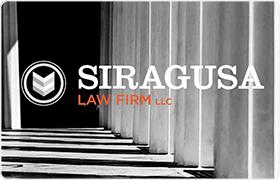Berkeley Heights Divorce & Family Law Lawyer, New Jersey, page 6
Sponsored Law Firm
-
 x
x

Click For More Info:
-
Siragusa Law Firm LLC
678 Route 202/206 Building 5, Suite 5 Bridgewater, NJ 08807» view mapDivorce & Family Law Creative Thinking. Exceptional Results.
At Siragusa Law Firm, we take our responsibility seriously. We are passionate about helping you, making sure to guide you through whatever legal matter you face.
908-218-1100
 Lynette Siragusa Bridgewater, NJ
Lynette Siragusa Bridgewater, NJ Practice AreasExpertise
Practice AreasExpertise